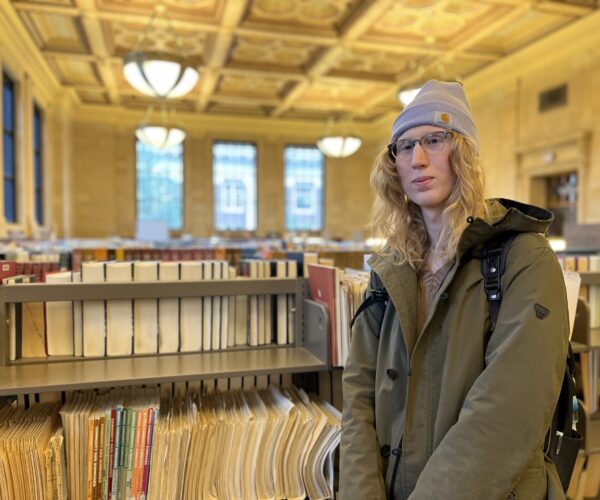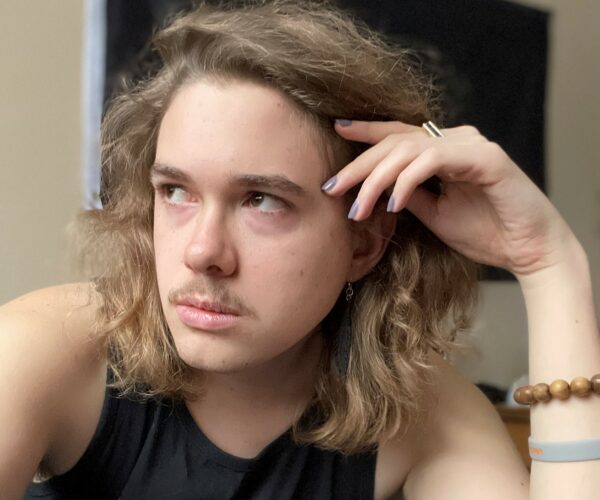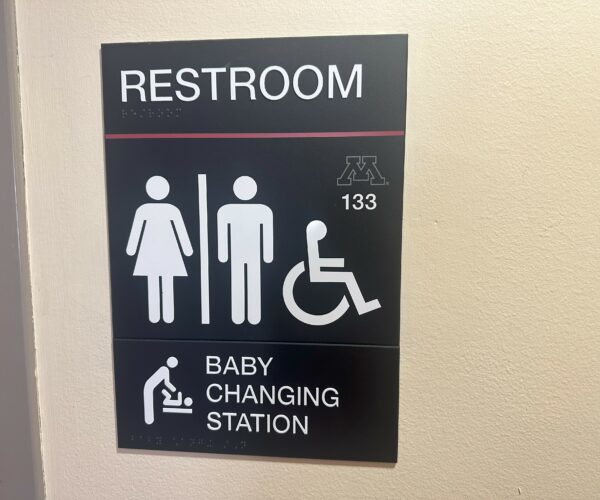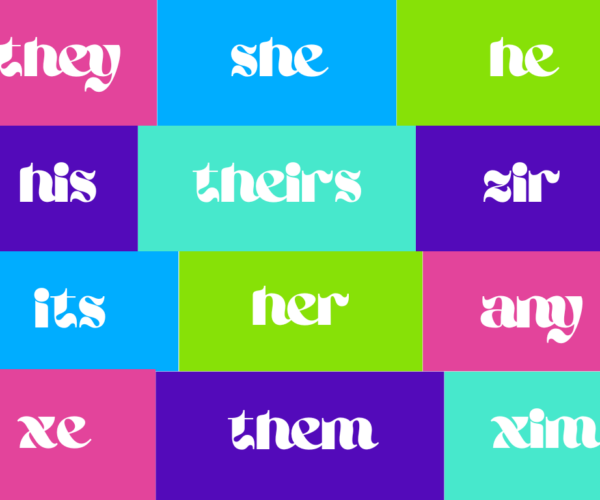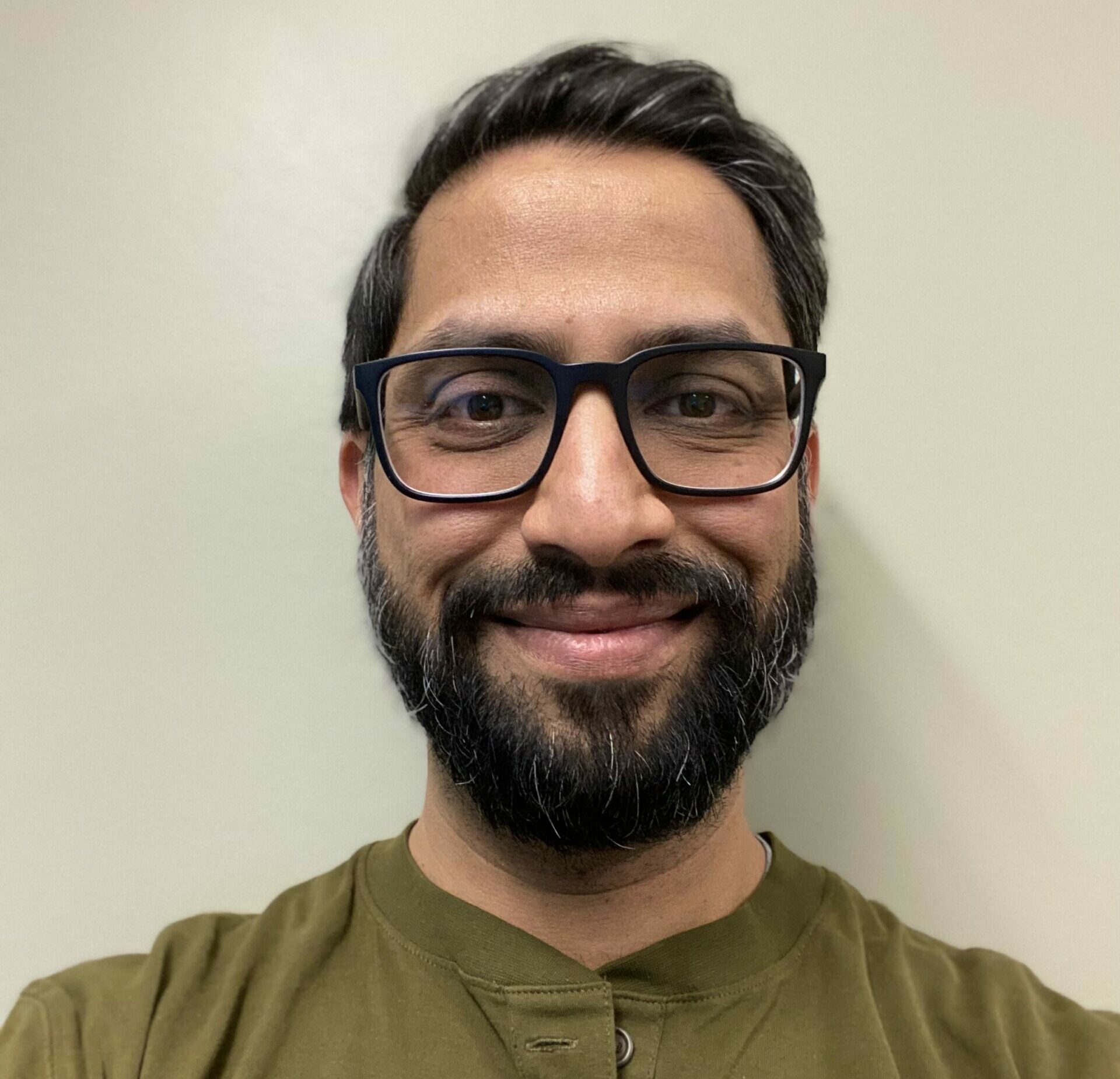By Abbey Machtig
When international students at the University of Minnesota are questioning or exploring their gender or sexual identity, coming out or just looking for LGBTQ+ connections and support, it’s Chirayu Dongre’s job to help them.
Dongre, a senior international counselor and adviser in the International Student and Scholar Services (ISSS) office, is the designated counselor for international LGBTQ+ students during their time at the University. He combines the job with other duties, like being the F1 visa adviser and coordinating the international student buddy program.
Yet working with queer international students is a role he sought out in 2019 when it was formally created, because he felt he could use his background to understand the experiences of others.
Dongre, who is of Indian descent, grew up in Kenya and came to the United States as an immigrant while in high school. He took on the role despite not identifying as queer.
“It’s not work that is undertaken just by people who are from that community, because then we make them responsible for their own sort of deliverance from their struggles,” Dongre said. “I don’t feel like that’s OK.”
There are around 5,000 international students currently enrolled at the University.
Although Dongre is not acting as a therapist to international LGBTQ+ students, he ends up offering critical support to them. His training includes a master’s in counseling and student personnel psychology from the University, which he received in 2006.
“I really am here to listen and it’s a really big responsibility because they’re sharing, in almost all cases, some really significant and sometimes really heavy stories about themselves, about their backgrounds, about their family situation,” Dongre said.
Differences in culture around sexuality and gender identity make it especially important for LGBTQ+ international students to have access to an adviser like Dongre. Attitudes around coming out and identifying as part of LGBTQ+ communities differ around the world and can be difficult for students to navigate, he said.
“This idea sometimes of being out and being proud is a very American, or at least a very Western, conception,” Dongre said. “And it’s not necessarily meeting international students where they are. It’s not as simple as that.”
Dongre said being accessible is important when it comes to meeting international students where they are. He said interactions with students usually start with an email asking him to talk.
Students come to see Dongre for various reasons. For some, studying in the United States may be their first opportunity to explore identities not accepted in their home countries. Others want advice before returning home.
“They may be here for four years or six years or longer and were really sort of living as their true selves. But if they have to go back home at some point … sometimes it’s like an ultimatum, where they have to choose: ‘Do I want to live openly or do I want to continue to have a relationship with my family or be employable or have opportunities for employment, or for marriage or children?’”
Although many were informally helping international students with these matters in the past, Dongre’s formal role is relatively new to the University.
As far as he’s aware, the University is one of only a few institutions in the country with this position.
“While we saw that a lot of ISSS offices have a dedicated page on their website to resources and talking about LGBTQIA issues, this type of role didn’t seem to be something that was common,” Dongre said.
A large part of Dongre’s position is also acting as a liaison between international students and other resources on campus for LGBTQ+ communities, like the Gender and Sexuality Center and Student Counseling Services. Sometimes he will refer a student to one of these services for additional conversations or support.
International LGBTQ+ students attend many of Student Counseling Services’ groups and workshops, according to a statement from Student Counseling Services’ outreach team.
“Student Counseling Services intentionally works to hold space in programming for students of all identities and experiences,” the statement said. “In addition to serving international LGBTQ+ students through individual counseling sessions, we also support students through Let’s Talk, groups and workshops.”
Dongre said one hard part of his job is not always knowing where or how students end up.
“You don’t always get to find out what happened after the fact, even after I refer a student over to meet with a counselor, for example, at Student Counseling Services,” Dongre said. “I do check in with the student via email and say I hope everything is going OK, I hope you’ve made a good connection, sometimes I’ll hear back and sometimes I won’t.”
But overall, Dongre said he hopes students walk away from these interactions feeling more supported.
“I see my job as not somebody who is an extension of the government, but more as somebody who is present to translate and help students navigate what is a very complex system, whether that is the regulatory immigration system or whether that is a cultural system,” Dongre said.
